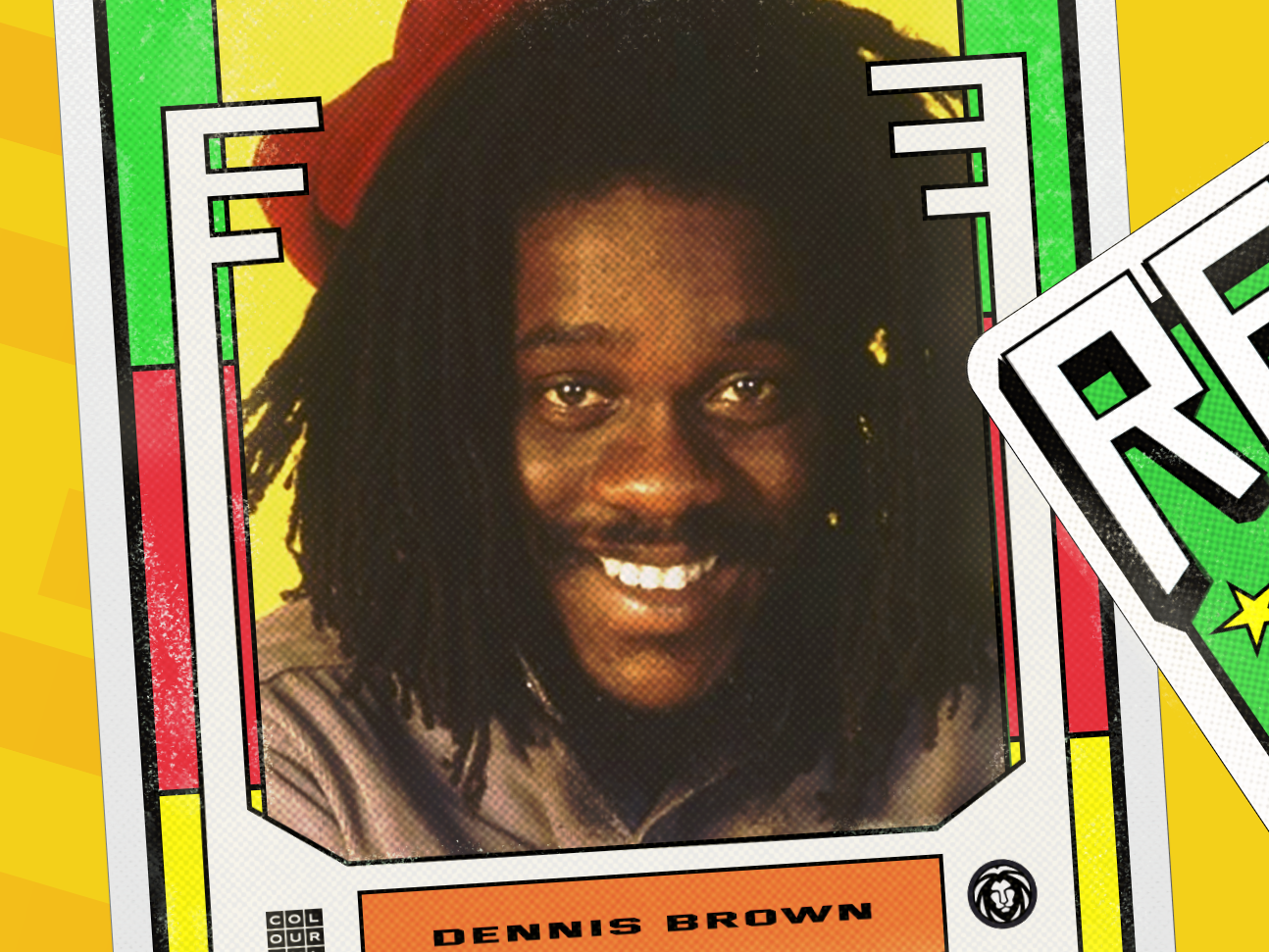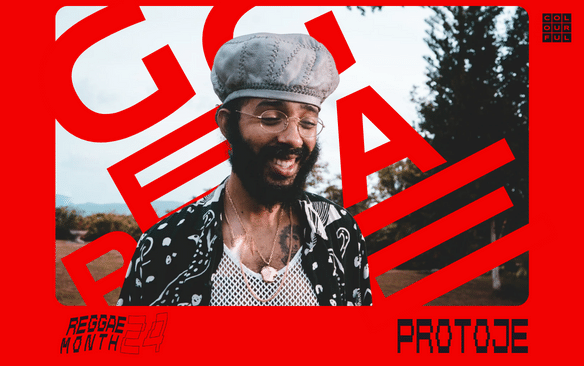Born Dennis Emmanuel Brown on 1 February 1957 in Kingston, Jamaica he was the youngest of four brothers and one sister.
His singing career began at the age of just 9 years old when he performed at an end-of-term concert. He was a fan of the American balladeers such as Brook Benton, Sam Cooke, and Frank Sinatra, and cited Nat King Cole as one of his greatest early influences.
He spent his early days hanging out at JJ's record store on Orange Street and family and friends would often request for him to sing in their yard.
His first professional gig came at age eleven on the stage of Tit for Tat - a local West Kingston Nightclub - where he made a guest appearance with the Fabulous Falcons. He was soon asked to join the group as a featured vocalist.
He went on to impress the likes of Byron Lee who dubbed him the "Boy Wonder” and booked him to perform on package shows with visiting US artists.
Brown's first recording was an original song called "Lips of Wine" produced by Derrick Harriott but his first release was for Clement "Coxsone" Dodd's Studio One label.
In his first session he recorded "No Man is an Island at just twelve years old. The single was released in late 1969 and soon became a huge hit across Jamaica.
Brown recorded nearly thirty songs with the legendary producer, and also worked as a backing singer on sessions for artists including Horace Andy and Larry Marshall on Alton Ellis's Sunday Coming.
On the advice of Ellis, Brown learnt to play the guitar to help his songwriting. The results were two albums, No Man is an Island and If I Follow my Heart.
He went on to record for several producers including Lloyd Daley, Prince Buster and Phil Pratt, before returning to work with Derrick Harriott, where he recorded a string of popular singles including "Silhouettes", "Concentration", "He Can't Spell", and "Musical Heatwave
Brown also recorded for Vincent "Randy" Chin, Dennis Alcapone, and Herman Chin Loy, while still at school!
In 1972, Brown was asked by Joe Gibbs to record an album. The sessions produced a cover of Winston “Niney” Holness’ "Money in my Pocket," which became a hit with UK reggae audiences.
The song's popularity in the UK grew with the deejay version "A-So We Stay (Money in Hand)", credited to Big Youth and Dennis Brown, which outsold the original single and topped the Jamaican singles chart.
Brown followed this with another collaboration with Holness on "Westbound Train", which became the biggest Jamaican hit of the summer 1973, confirming Brown's star status as Jamaica's top male vocalist.
After a break due to overwork, Brown returned to music in 1974 to toured the UK as part of a Jamaican showcase, along with Cynthia Richards, Al Brown, Sharon Forrester, and The Maytals.
On their return to Jamaica, Brown and Holness resumed recording with tracks for a new album, including "So Long Rastafari", "Boasting", and "Open the Gate".
In 1976, Brown voiced two tracks at Lee "Scratch" Perry's Black Ark Studio, one being "Wolf and Leopard” which became a hit in Jamaica and would prove to be one of Brown's most popular songs.
Brown began working again with Joe Gibbs in 1977. They released Visions of Dennis Brown, which blended conscious themes and love songs.
The sleeve’s back cover was emblazoned with a portrait of Haile Selassie; complementing the roots reggae tracks on the album including "Repatriation", "Jah Can Do it", and cover versions of Earl 16's "Malcolm X" and Clive Hunt's "Milk and Honey".
Visions of Dennis Brown was voted reggae album of the year by Melody Maker writers and was given the same award by readers of Black Echoes.
In 1978, Brown moved to London to relaunch his DEB Music label with Castro Brown, with artists featured on the label including Junior Delgado, 15.16.17, Bob Andy, Lennox Brown, and later, Gregory Isaacs.
Brown had further success himself with a disco mix of "How Could I Leave You", a version of The Sharks' rocksteady standard "How Could I Live".
In August of ’78, Brown released a version of Price Mohamed’s "Cool Runnings", which gave Brown his first UK Top 40 hit, reaching number 14 the following year. It became one of the biggest international hits in Jamaica's history, after crossing over into soul and rock clubs.
In 1984, he collaborated with Gregory Isaacs on the album Two Bad Superstars Meet and the hit single "Let aaf Sum'n", recorded with Sly & Robbie and Jammy, which was followed Judge Not in 1985.
Brown continued to record prolifically throughout the 80s and 90s, notably on the Three Against War album in 1995 with Beenie Man and Triston Palma, and on albums produced by Mikey Bennett.
In the late 1990s he was managed by Tommy Cowan, who contrasted Brown to Bob Marley. He said of Brown: "Dennis was like a community person, he would earn money and in one hour he would give it away."
Brown said of his approach to songwriting:
"When I write a song I try to follow Joseph's way – deliverance through vision from all – true vibration. I want to be a shepherd in my work, teaching and learning, really singing so much. I don't want to sing and not live it. I must live it. If I can sing songs that people can watch me living, then they can take my work"
Brown had been nominated for two Grammy Awards for his albums Light My Fire and Let Me Be the One.
After a period of ill-health, Brown passed away on the evening of June 30 1999.
Brown’s brother Leroy Clarke said of his brother; "I just give Jah thanks and praise for Dennis’ life and what he has contributed to the world through the root of music…he has done a lot. He has paid his dues. You want to know the true Dennis? Listen to his lyrics. He was singing from the heart"
Dennis Brown was an inspiration to many artists including Barrington Levy, Junior Reid, Frankie Paul, Luciano, Bushman, and Richie Stephens.
In April 2012, a commemorative blue plaque was placed on Brown's home in Harlesden by the Nubian Jak Community Trust.
His legacy lives on through his powerful music and messages.





